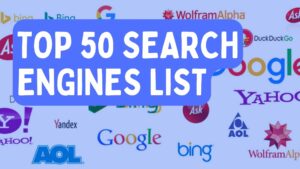
SEO, or search engine optimization, is the process of improving a website’s visibility on search engines like Google. Many factors contribute to a site’s SEO performance, and on-page elements play a significant role in this. In this article, we’ll explore which on-page element carries the most weight for SEO and provide tips on how to optimize these elements effectively.
- Importance of Title Tags
- Role of Meta Descriptions
- Significance of URL Structure
- Role of Header Tags
- Importance of Keywords
- Image Optimization
- Benefits of Internal Linking
- Importance of High-Quality Content
- Significance of Page Speed
- Importance of Mobile Friendliness
- Impact of Social Sharing on SEO
- Schema Markup
- Conclusion
- FAQs
Importance of Title Tags
Title tags, also known as H1 tags, are one of the most critical on-page elements for SEO. They are the first thing search engines and users see when they encounter your webpage. A well-crafted title tag can not only boost your site’s SEO but also increase click-through rates (CTRs).
Tips for Writing Effective Title Tags
- Keep it under 60 characters.
- Include your primary keyword.
- Make it relevant and descriptive.
- Avoid keyword stuffing.
Role of Meta Descriptions
Meta descriptions provide a brief summary of your web page’s content and can influence a user’s decision to click on your page. While not a direct ranking factor, an enticing meta description can increase CTRs, which can positively impact your SEO.
How to Write Compelling Meta Descriptions
- Keep it between 150-160 characters.
- Include your primary keyword.
- Focus on the benefits or solutions your page offers.
- Use a clear and actionable tone.
Significance of URL Structure
A clean and descriptive URL structure can improve your website’s user experience and help search engines better understand your content. An optimized URL structure can also help users remember your webpage, increasing the likelihood of return visits.
Best Practices for URL Structure
- Use descriptive keywords.
- Keep it short and simple.
- Use hyphens to separate words.
- Avoid using special characters or excessive parameters.
Role of Header Tags
Header tags, such as H2, H3, and H4, help organize your content and make it easier for both users and search engines to understand. They act as signposts, guiding readers through your content, and help search engines recognize the hierarchy of information on your page.
How to Use Header Tags Effectively
- Include relevant keywords in your headers.
- Use header tags sequentially (H2, H3, H4, etc.).
- Make sure headers are descriptive and informative.
Importance of Keywords
Keywords are the foundation of SEO. By strategically placing relevant keywords throughout your content, you signal to search engines what your page is about, helping improve your rankings for those terms.
Strategic Keyword Placement
- Use your primary keyword in the title tag, meta description, and headers.
- Place keywords naturally within your content without overstuffing.
- Utilize synonyms and related phrases to avoid repetition.
Image Optimization
Images can enhance user experience and provide additional context for search engines. However, unoptimized images can slow down your site and negatively affect your SEO.
Tips for Optimizing Images
- Use descriptive file names and alt tags with relevant keywords.
- Compress images to reduce file size without compromising quality.
- Choose the appropriate image format (JPEG, PNG, WebP).
Benefits of Internal Linking
Internal linking connects your webpages, making it easier for users to navigate your site and for search engines to crawl and index your content. A well-structured internal linking strategy can also help distribute link equity and improve your overall SEO performance.
Best Practices for Internal Linking
- Use relevant and descriptive anchor text.
- Link to high-quality, relevant pages.
- Avoid excessive or forced linking.
Importance of High-Quality Content
Quality content is at the heart of any successful SEO strategy. High-quality content can engage users, encourage them to share, and signal to search engines that your site is an authoritative and valuable resource.
Tips for Creating Quality Content
- Write for your audience, not just search engines.
- Focus on providing value, information, or entertainment.
- Make your content easily digestible with headers, bullet points, and images.
Significance of Page Speed
Page speed is a crucial factor for user experience and SEO. Slow-loading pages can frustrate users and increase bounce rates, which can negatively impact your search rankings.
How to Improve Page Speed
- Optimize images and videos.
- Minify HTML, CSS, and JavaScript files.
- Use a content delivery network (CDN) to serve resources faster.
Importance of Mobile Friendliness
With the majority of internet users accessing the web through mobile devices, it’s essential to ensure your site is mobile-friendly. A mobile-friendly site can improve user experience and positively influence your search rankings.
How to Ensure Mobile Friendliness
- Implement a responsive design.
- Optimize for touch-screen navigation.
- Test your site on various devices and screen sizes.
Impact of Social Sharing on SEO
While social signals may not be a direct ranking factor, having users share your content can increase visibility, drive traffic, and boost your site’s overall authority.
Encouraging Social Sharing
- Include social sharing buttons on your pages.
- Create shareable, engaging content.
- Share your content on your social media channels.
Schema Markup
Schema markup is a form of structured data that helps search engines better understand your content and display it more effectively in search results. It can improve your click-through rates and enhance your overall SEO performance.
Benefits of Using Schema Markup
- Enhance search results with rich snippets.
- Improve content discoverability.
- Increase your site’s visibility and click-through rates.
Conclusion
While various on-page elements impact SEO, it’s essential to focus on optimizing your site as a whole. By prioritizing elements like title tags, meta descriptions, header tags, and high-quality content, you can improve your site’s visibility in search engine results and enhance the user experience.
FAQs
- Which on-page element is the most important for SEO?
While there isn’t a single on-page element that outweighs all others, title tags, meta descriptions, and header tags are some of the most critical factors for SEO success.
- How can I improve my site’s page speed?
Optimizing images, minifying code files, and using a content delivery network (CDN) can significantly improve your site’s page speed.
- What is the ideal length for a meta description?
A meta description should typically be between 150-160 characters long to display effectively in search engine results.
- How do I optimize images for SEO?
Use descriptive file names and alt tags, compress images to reduce file size, and choose the appropriate image format (JPEG, PNG, WebP).
- Should I use Schema Markup on my website?
Yes, implementing Schema Markup can help improve your site’s visibility in search results and enhance click-through rates by providing more context to users.

















